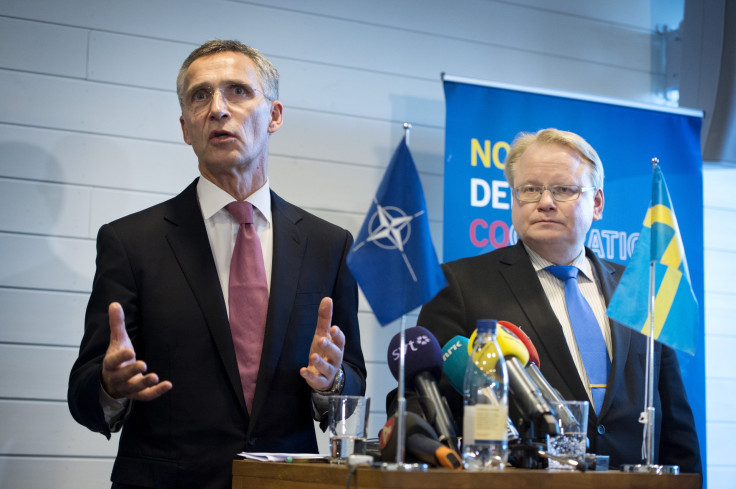Amid Russian Hostility, NATO Agrees To War Pact With Sweden, Finland And Baltic Regions

Governments in the Nordic region have welcomed a new military agreement that will see a greater NATO presence in Sweden, Finland and the Baltic states, as attempts to thwart increased Russian aggression across Europe are ramped up. NATO Secretary General Jens Stoltenberg met with Baltic and Nordic defense ministers in Stockholm this week to discuss the new plans, Defense News reported Thursday.
“It makes sense to deepen our cooperation further, not alone among our Nordic allies and partners, but also with our Baltic allies," Stoltenberg said at joint press conference during the two-day meeting.
The "partners" refers to Sweden and Finland, which are not NATO members. But they have steadily strengthened their ties to the alliance since Russian annexed Crimea in March 2014 and began supplying troops and equipment to the pro-Russian rebels in the east Ukraine war. The Baltic countries of Estonia, Lithuania and Latvia, which were part of the Soviet Union until 1991, have been NATO members since March 2004.
The meeting with Stoltenberg, a former Norwegian prime minister, came against a backdrop of continuing tensions with an increasingly unpredictable Moscow, which has recently intervened directly in the Syrian civil war.
"Not in any way does NATO seek confrontation with Russia," Stoltenberg said. "What we are looking for is cooperation and dialogue. However, that cooperation must be based on predictability and strength."
NATO cooperation has been particularly welcome in Stockholm, where a new left-leaning government has been looking for ways to retain the country’s increasingly nominal neutrality while also building ties with NATO. Sweden has traditionally rejected overtures from the alliance, although a recent poll had shown increased public support. Around 41 percent said they would favor joining, according to a September report from the Swedish English-language website the Local.
"Joint exercises are one way for Sweden to signal that the country is part of a collective force, even though we are not NATO members," said Defense Minister Peter Hultqvist during the meeting with Stoltenberg.
Hultqvist’s Finnish counterpart, Jussi Niinistö, also welcomed the new relationship. "The development of secure communication links will be of paramount importance once defense cooperation begins and deepens," said Niinistö.
© Copyright IBTimes 2024. All rights reserved.





















